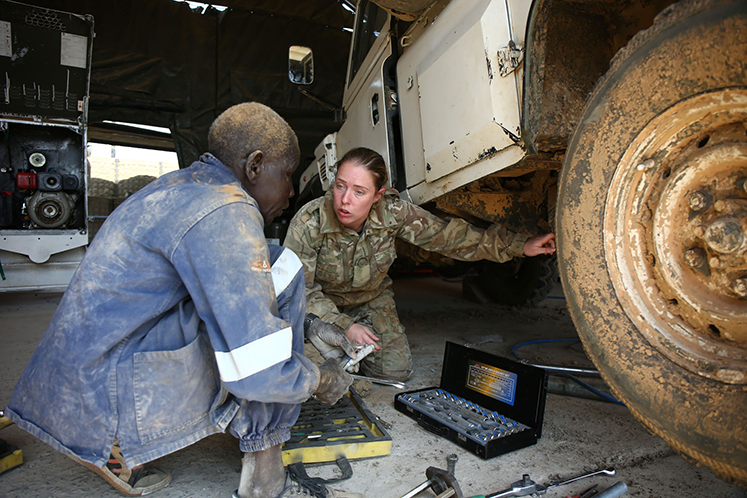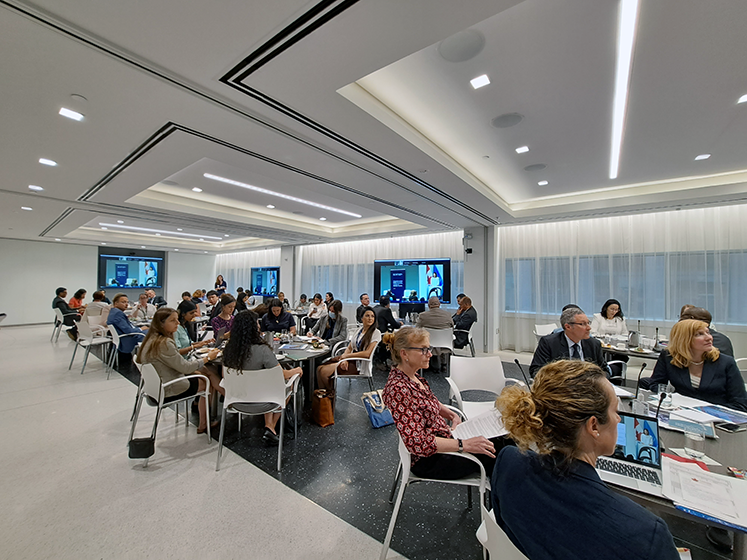What will it take for UN peace operations to be fit-for-the-future?
Peace operations are a key part of the international community’s conflict management toolkit. They’re proven to be effective in preventing and even ending conflict, reducing levels of violence, and extending post-conflict peace conditions.
But if peace operations are so successful, why does their average duration exceed 12 years? The answer is neither simple nor straightforward. Research and field experience have shown that the main challenge of peace operations is establishing long term, sustainable peace.
This is more than just the absence of armed conflict. It’s the guarantee of equal safety, security, opportunities, and livelihood for all people, regardless of gender. Peace operations that aspire to furthering sustainable peace must therefore take gender equality seriously - yet according to research, this is not reflected in the experiences of most peacekeepers.
Video available in French and Spanish
To be truly effective, peace operations must put gender equality at the core of both policies and practice. A first step is to identify the challenges and opportunities for male and female peacekeepers before, during, and after deployment. A comprehensive assessment of existing practices, policies, and perceptions can prompt paradigm shifts. This is precisely what the MOWIP Methodology, developed under the umbrella of the Canada-led Elsie Initiative, does.
Last month, DCAF’s Global MOWIP report was launched during a hybrid event which had at the center the experience of the second female General of the Ghana Armed Forces, Brigadier-General Felicia Twum-Barima, who has served in five UN peace operations. The report, based on data from four countries, underscores the need to reassess the skills and character traits best suited to peacekeeping work, and to create an environment where women and men can equally thrive and excel as peacekeepers.
RECRUIT THE RIGHT PEOPLE FOR THE JOB
Peacekeepers need to possess the capacities and mindsets that will contribute to building sustainable peace. Together with operational and tactical competencies, communication and interpersonal skills are central for the success of peace operations.
“The need for excellent communication skills as a tool for functioning in a multi-national, multi-cultural environment can therefore not be underestimated (…) given the chance and the requisite preparation for peacekeeping operations, women could also function effectively in non-traditional roles.”
Brigadier-General Twum Barima, GAF

Corporal Heather McQueen, a vehicle mechanic with UNMISS in Malakal, South Sudan,
teaches Angelo, a local colleague how to maintain vehicles. Photo: UN
Moreover, MOWIP assessments show that people who strongly believe in gender stereotypes are also more likely to tolerate misconduct – such as drunk-driving, bribery, and sexual exploitation and abuse. As such, assessing personal mindsets ought to become part and parcel of the selection processes.
CREATE A CONDUCIVE ENVIRONMENT FOR PEOPLE TO THRIVE
Beyond numbers, gender equality in peace operations also means ensuring that the environment into which peacekeepers are deployed is healthy and respectful, that personnel are not subject to any form of discrimination or harassment, and that adequate reporting mechanisms are in place. With women currently severely underrepresented in UN peace operations, preventing and responding to gender-based abuse and harassment should be a priority.
Ensuring access to mental health and psycho-social support services at all phases of deployment contributes to the health and well-being of peacekeepers and, more broadly, to the trust and social cohesion within missions. People who feel good will do a better job.
At the Global MOWIP launch Fatemeh Ziai, Director of Coordination for the UN Departments of Peace Operations and Political and Peacebuilding Affairs, said that this is already underway. “The UN is working on a mental health policy strategic framework for uniformed personnel – this involved the deployment of tools to support peacekeepers before, during, and post deployment. We are also working on a post-traumatic stress disorder implementation project,” said Ziai.

At the Global MOWIP launch at the United Nations complex in New York, USA. Photo: DCAF
In sum, fit-for-the-future peace operations call for updated deployment criteria that include a review of attitudes towards gender equality as part of the selection process; strengthened prevention and response in cases of exclusion or harassment; and reinforced availability and accessibility of mental health services for peacekeepers.
There is useful guidance and tools to help get there, such as the Action for Peacekeeping plus (A4P+) Initiative and existing MOWIP assessments. But nothing can truly be achieved without the political commitment from the United Nations and the countries that contribute police officers and troops to peace operations.
 Share on Facebook
Share on Facebook Share on Linkedin
Share on Linkedin Share on Twitter
Share on Twitter